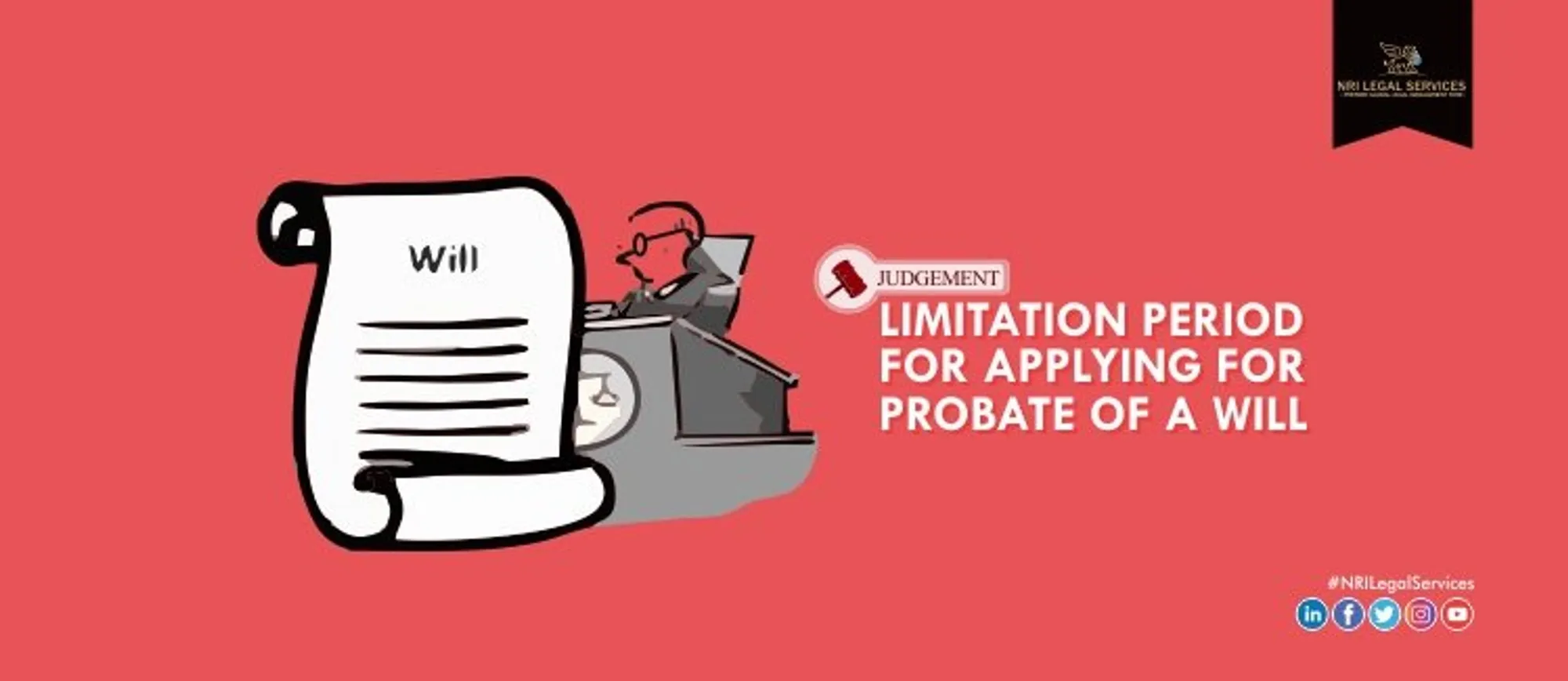In a recent case the High Court of Calcutta has examined the question of limitation for applying for probate of a Will and has delivered a judgement on 11.06.2020.
As per the facts of the case, the testator died on 13th June 1993. He had made and signed a Will on 16th April 1989.
The application for probate was filed on 8th September 2014 by the executor named in the Will. One of the legal heirs applied for rejection of the probate application on the ground that it is barred by Article 137 of the Limitation Act. Article 137 is a residuary clause and provides, for filing of a suit, within three years from the date when the right to sue accrues.
In the present case, it was argued that the right to file accrued on the date when the testator died, i.e. on 13.06.1993. Therefore, the application for probate should have been filed within three years from 13.06.1993. But the same has been filed in September 2014, i.e. after 21 years without explaining the delay.
Recommended reading: Landmark Judgement by consumer court against property builder
The other party contended that the right to apply for probate accrues only when a challenge is made to the Will, or it is disputed. The time of three years does not run from the date of death of the testator.
The High Court has ruled that Article 137 applies to the cases of application for probate and the time envisaged will be activated once the right is denied, giving rise to a consequent need to assert the right. The right to file accrues when the Will is disputed, or it becomes necessary to apply for probate which may not necessarily be within three years from the date of the deceased’s death.
The High Court followed the interpretation given to the words “When the right to sue accrues” (as appearing in Article 113 and Article 137 of the Limitation Act) by Hon’ble Supreme Court recently in a case of Shakti Bhog Food Industries Limited. In this case, it was held that Article 113 does not specify happening of a particular event for computing the limitation period. It only refers to the accrual of the cause of action based on which the right to sue would accrue. The period of limitation would begin from the time when the right to sue accrues and not necessarily from the time when the right to sue accrues first.
Recommended reading: Nomination is not a WILL
Applying the same principle in the present case, High Court has held that cause of action in case of probate cannot be interpreted to have occurred only at the time of death of the testator.
The Court further stated that Section 293 of the Indian Succession Act provides for a cooling-off period of expiration of 7 days from the day of the testator’s death before probate of a Will can be granted. There is no outer limit within which an executor has to take out an application for grant of probate.
The Legislature has deliberately provided no endpoint for filing such application. The purpose of probate is to give effect to the Will of the testator. It should not be defeated merely by delay on the part of executor.
Recommended reading: Adverse Possession
In an application for grant of probate, the applicant claims no right. There is a demand for permission of the court to perform a duty cast by the author of the testament upon the executor concerning the administration of his estate.
Right to file for probate is a continuous right and therefore, Article 137 cannot be construed as limiting the period to three years from the date of death of the testator. If done so, it would frustrate the very object of the law preserving the wishes of a testator.
The decision has made it clear that the period of limitation for matters under Article 137 of the Limitation Act, would begin from the time when the right to sue accrues based on a cause of action which may or may not have occurred at the first point of time.
NRI Legal Services is now on Telegram. Join NRI Legal Services channel in your Telegram and stay updated.
Download Full Judgment

